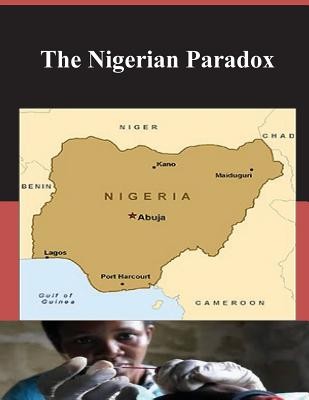
- We will send in 10–14 business days.
- Author: Naval War College
- Publisher: CreateSpace Independent Publishing Platform
- Year: 2014
- Pages: 32
- ISBN-10: 1502900882
- ISBN-13: 9781502900883
- Format: 21.6 x 27.9 x 0.2 cm, minkšti viršeliai
- Language: English
- SAVE -10% with code: EXTRA
Reviews
Description
The prosperity of a nation is directly linked to the education of its population. An educated population has the knowledge base and skill necessary to translate its country's natural wealth (people, land, resources) into material wealth (economic strength and competitiveness). In Nigeria, this link is missing, undermined by rampant corruption at all levels of its educational system. The most damaging aspect of corruption is the amount of money lost through practices such as embezzlement. To prevent such losses, this book recommends that the Government of Nigeria undertake a comprehensive anti-corruption campaign centered around establishing accountability throughout its educational sector. The analysis suggests that accountability is best achieved through indirect methods aimed at increasing capacity in three distinct, yet overlapping areas: data collection, management, and oversight. Those who oppose this approach argue the most effective means of battling corruption is through direct measures that use punitive acts as deterrents against further corruption. The book concludes with specific recommendations that could help the Nigerian Government reduce the impacts of corruption in its school system and achieve its objective of universal, free, and compulsory education for its youth.
EXTRA 10 % discount with code: EXTRA
The promotion ends in 21d.02:48:19
The discount code is valid when purchasing from 10 €. Discounts do not stack.
- Author: Naval War College
- Publisher: CreateSpace Independent Publishing Platform
- Year: 2014
- Pages: 32
- ISBN-10: 1502900882
- ISBN-13: 9781502900883
- Format: 21.6 x 27.9 x 0.2 cm, minkšti viršeliai
- Language: English English
The prosperity of a nation is directly linked to the education of its population. An educated population has the knowledge base and skill necessary to translate its country's natural wealth (people, land, resources) into material wealth (economic strength and competitiveness). In Nigeria, this link is missing, undermined by rampant corruption at all levels of its educational system. The most damaging aspect of corruption is the amount of money lost through practices such as embezzlement. To prevent such losses, this book recommends that the Government of Nigeria undertake a comprehensive anti-corruption campaign centered around establishing accountability throughout its educational sector. The analysis suggests that accountability is best achieved through indirect methods aimed at increasing capacity in three distinct, yet overlapping areas: data collection, management, and oversight. Those who oppose this approach argue the most effective means of battling corruption is through direct measures that use punitive acts as deterrents against further corruption. The book concludes with specific recommendations that could help the Nigerian Government reduce the impacts of corruption in its school system and achieve its objective of universal, free, and compulsory education for its youth.


Reviews